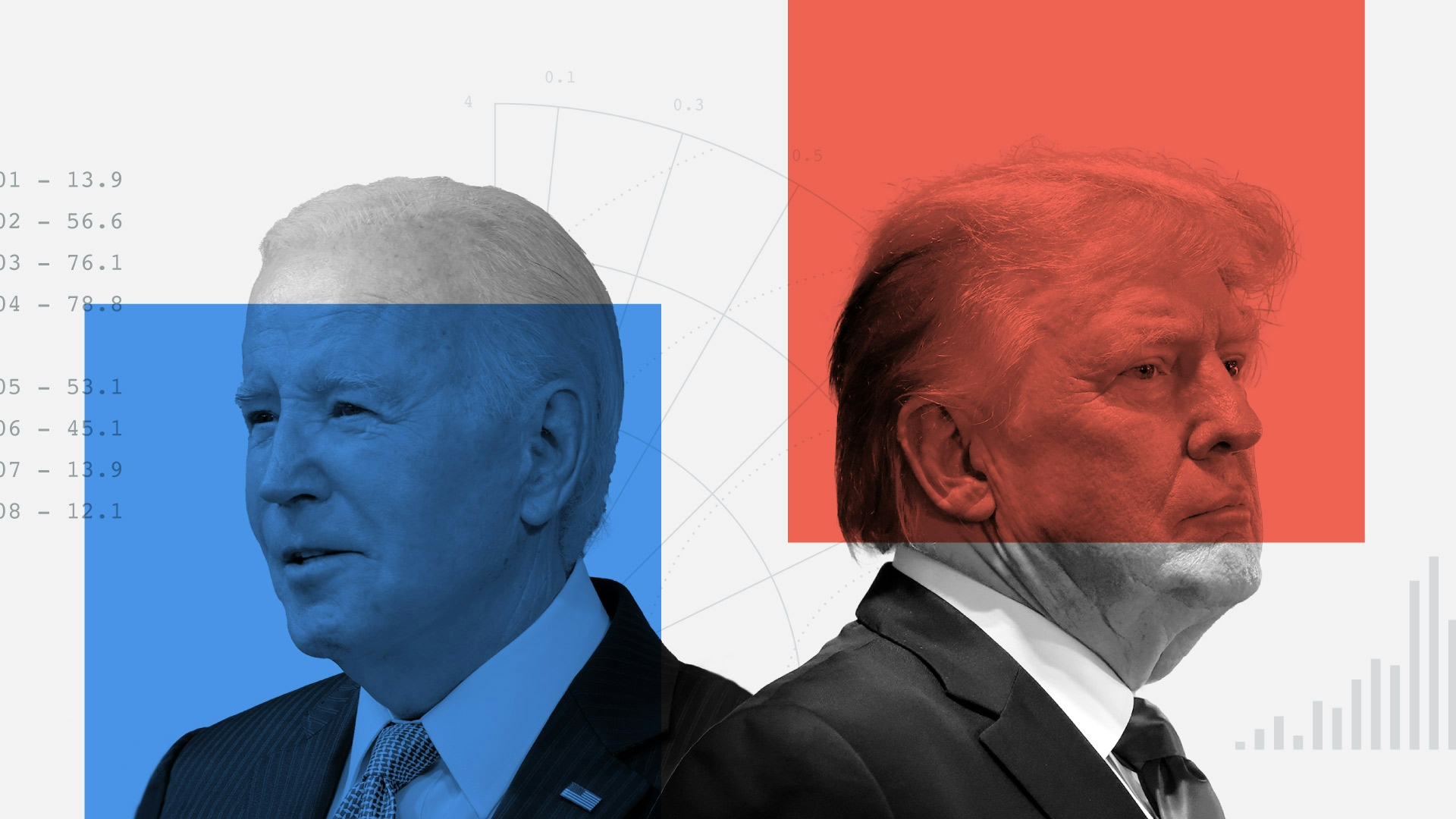Why Trump Will Have a Hard Time Blaming Biden for Inflation

Data Downloads
Pro+ subscribers are able to download the datasets that underpin Morning Consult Pro's reports and analysis. Contact us to get access.
Following a worse-than-expected inflation report and subdued consumer confidence, President Donald Trump laid the blame for the state of the economy squarely at the feet of his predecessor, who only just left office.
While many voters agree that the Biden administration’s policies are mostly responsible for today’s economy, Trump is getting nearly as much credit — or blame, depending on how you want to look at it — a month into his term, and more find him responsible than when he inherited Barack Obama’s economy when he first took office.
Whose economy is it? Voters are split

Slightly more voters than not say Joe Biden is mostly responsible for the condition of the economy (44%), compared with 39% who said the same of Trump. However, the share who hold Trump responsible today is slightly higher than the 36%who did so back in mid-March 2017.
This difference is driven by larger shares of Democrats and independent voters who view today’s economy as primarily Trump’s, while Republicans are more likely to blame Biden this time around than Obama eight years ago.
This comes as our tracking of public opinion on Trump’s Washington shows that what voters say they’re hearing about the economy has worsened since Trump took office in January after a dramatic improvement during the lead-up to his inauguration as buzz about the president’s pet projects has been on the rise.
Economic buzz has worsened since Trump took office

In our most recent survey, voters were twice as likely to say they had seen, read or heard something mainly negative about the economy (44% to 22%) amid news about Trump’s steel and aluminum tariffs and January’s inflation. The 22-point gap between those two figures is worse than it was during most of Biden’s final two years in office.
This comes as what voters are hearing about immigration is at a high since early 2022, and as buzz about trade improves as the news cycle moves on from tariff disputes with Mexico and Canada.
The bottom line
Voters are already nearly as likely to view Trump’s policies as mostly responsible for current economic conditions as they are to attribute them to the Biden administration’s. Plus, more voters view Trump as responsible for the economy than did at an even later point in his first term in office.
That suggests a quickly closing window for Trump to blame his predecessor for negative economic developments, especially if voters make a connection between the president’s positions on trade and taxes, which economists say are inflationary in nature, and any increases in prices.
Our data suggests voters are already cognizant of Trump’s priorities, which are out of step with the consensus. While 74% of voters say lowering prices should be a top priority, compared with just 22% who say the same of tariffs on U.S. imports, an equal share (49%) believe that both of these priorities are at the top of Trump’s list.
While Trump still has a positive net approval rating on the economy, the share who approve of his handling of the economy has declined from 53% to 48%, while congressional Republicans’’ trust advantage on the matter has shrunk to a sliver.
If inflation remains stubborn and Trump follows through on his economic policies, there’s little doubt about who the public will blame.
Eli Yokley is Morning Consult’s U.S. politics analyst. Eli joined Morning Consult in 2016 from Roll Call, where he reported on House and Senate campaigns after five years of covering state-level politics in the Show Me State while studying at the University of Missouri in Columbia, including contributions to The New York Times, Politico and The Daily Beast. Follow him on Twitter @eyokley. Interested in connecting with Eli to discuss his analysis or for a media engagement or speaking opportunity? Email [email protected].